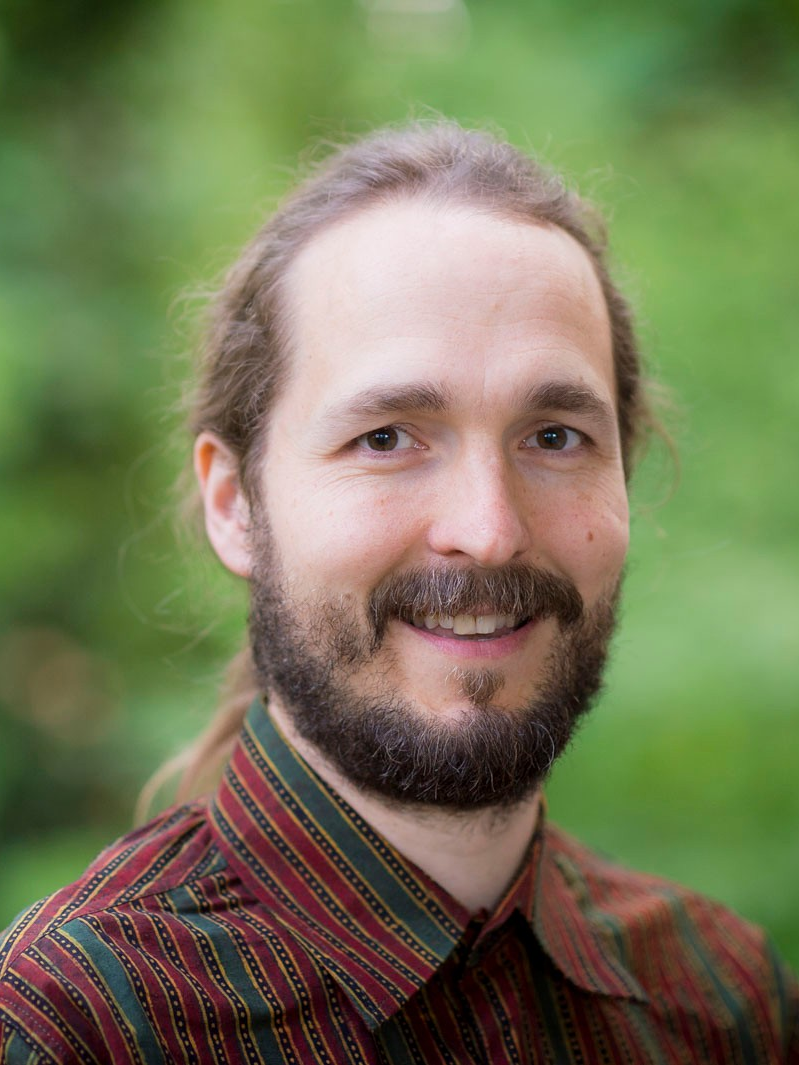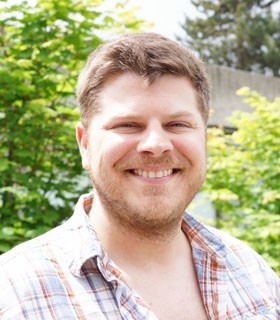News & Events
Instructor & Staff Resources
Work With Us


Faculty of Education
- Graduate Studies
- Doctoral Programs
PhD in Educational Theory and Practice: Philosophy of Education Stream
- Experience Education
- Student Experience
- Information Sessions
- Useful Guides, Links & Forms
- Financial Resources
- Meet our Mentors
- Student Association
- Friends of Simon
- Due Process and Withdrawals
- Policy Regarding Program Interruption
- Re-Entry and Re-Admission
- Private Awards & Scholarships
- Emily Longworth Memorial Award
- Raneeka Gill Award
- Professional Diplomas Students
- Upcoming Thesis Examination
- Course Outlines
- Work & Professional Development
- Programs of Study
- Application & Tuition
- Counselling and Human Development Minor
- Curriculum and Instruction Minor
- Early Learning Minor
- Educational Psychology Minor
- Learning and Developmental Disabilities Minor
- Social Justice in Education Minor
- Elementary Generalist Minor
- Environmental Education Minor
- French Education Minor
- Physical and Health Education Minor
- Secondary Mathematics Education Minor
- Secondary Teaching Minor
- French and Education Certificate
- Professional Practices Certificate
- Foundations of Academic Literacy
- Post Application
- French Module
- Demande d’admission et frais de scolarité
- Post-candidature
- Formation DUALE
- Niveau de français
- Join Our Interest List
- Counselling and Human Development (PBD)
- Early Learning (PBD)
- Environmental Education (PBD)
- Education (General) (PBD)
- French and Education (PBD)
- Special Education (PBD)
- MEd in Educational Leadership: Indigenous Resurgence
- Arts Education
- Counselling Psychology
- Curriculum and Instruction
- Educational Leadership
- Educational Psychology
- Educational Technology & Learning Design
- Equity Studies in Education
- Languages, Cultures & Literacies
- Mathematics Education
- Programs in French
- Themes in Community
- Program Comparision
- Faculty Directory
- Indigenous Education
- Indigenous Programs & Courses
- Supporting Aboriginal Graduate Enhancements (SAGE)
- Welcome to the Indigenous Education and Reconciliation Council (IERC)
- Indigenous Education & Research
- Explore Community
- Professional Learning Series
- International Student Resources
- SFU Surrey Community Counselling
- Cmolik Prize for the Enhancement of Public Education in BC
- Office of the Dean
- Support Students
- Support Research
- Support Communities
- Impact of your gift
- Submission Process
- 2019 Final Results
- 2017 Final Results
- 2016 Final Results
- 2015 Final Results
- Tech Support
- Room Bookings
- Visiting Scholars
- Visiting Faculty
- Adjunct Professors
- Redeem Tuition Fee Credits (TFCS)
- Faculty Associates
- Adjunct Faculty Associates
- GDE Mentors
- General Inquiries & Offices
- Undergraduate Studies
- Professional Diplomas
- Teacher Education

Doctor of Philosophy
| In-person | October 1, 2024 | December 1, 2024 | September 2025 |
Application & Tuition
Explore the deeper questions related to individual, cultural and environmental aspects of education. You see or dream that the world can be transformed, and in the process expect to also be transformed as well.
On This Page ↓
Program Overview Program Design & Courses Location Faculty Future Pathways Student Experiences Contact
PROGRAM OVERVIEW
Designed for.
This program is intentionally broad to be inclusive of the diverse range of fields of study of our students that could be explored through the lens and dynamics of theories and practices in education.
Program Structure
- in-person classes
- classes held late afternoon/early evening
- 6 courses plus a qualifying examination and doctoral thesis
Intake Schedule
Next Start Terms Fall 2025
PROGRAM DESIGN & COURSES
Program design.
Our Educational Theory and Practice (eTAP) programs are intentionally broad to be inclusive of the diverse range of fields of study that could be explored through the lens and dynamics of theories and practices in education.
This multi and interdisciplinary understanding promotes inquiry into your own specific interests and backgrounds within your classes through discussions, additional readings, papers, projects, etc., under the guidance and mentorship of your supervisor and committee.
You will receive close academic mentorship with one or more faculty members who have expertise in areas of research that resonate with your own areas of inquiry.
Am I ready to apply to the ETAP Doctoral Program?
Doctoral studies involve sustained scholarly work, typically for a period of six years. Some possible indicators of readiness to undertake an intensive course of study at the doctoral level include:
- A disposition of curiosity, questioning, and reflection beyond your masters course work
- A tolerance for uncertainty and an openness to new ideas
- The capacity to engage in a sustained and regular writing practice
- Reading ongoingly in your area of interest, beyond the curriculum of your master’s course work
- The ability to identify a focus, question or problem that you care deeply about. This focus should feed your soul and have the potential to contribute to understandings, applications, pedagogies, capacity building, and/or practices
- A sense of the scholarly conversations that you want to contribute to
- Knowledge of, and ideally participation in, the current research, community-based, and/or practice-based conversations related to this line of inquiry
- The time and motivation, as well as the physical and emotional energy, and family support to pursue this line of inquiry over a period of years
- A familiarity with research traditions/approaches to inquiry
- The ability to self-direct your scholarly work, as well as work collaboratively with peers and mentors
Doctoral Students typically work closely with one or more faculty mentors from the ETAP program over the course of their studies. It is advisable to review the affiliated faculty members’ research interests and publications and consider how their scholarly expertise and interests may align with your proposed research. We recommend initiating a conversation with a faculty member who you believe may be a suitable pro tem supervisor for your work early in the applications process.
Courses EDUC 901A and EDUC 901B are taken together as well as EDUC 902A and EDUC 902B. Students complete:
EDUC 901A-3 SEMINAR IN THE HISTORY OF EDUCATIONAL THEORY A
The historical roots of educational thought are examined from a broad cultural perspective. Major works in disciplines such as philosophy, psychology and sociology which have had significant impact on educational theorizing will be studied. Special attention will be paid to the relationship between theory and educational practice. Corequisite: EDUC 901B.
EDUC 901B-3 SEMINAR IN THE HISTORY OF EDUCATIONAL THEORY B
A further consideration of concepts explored in the EDUC 901 "A" course, with a view to providing students with opportunities to apply these ideas within their own educational settings. Corequisite: EDUC 901A.
EDUC 902A-3 INTERDISCIPLINARY SEMINAR IN CONTEMPORARY EDUCATIONAL THEORY A
Contemporary educational theories and theories from supporting disciplines (e.g., psychology, sociology, philosophy) will be examined and analysed. The relationships among contemporary theories, current practice and educational change will be focal. Corequisite: EDUC 902B.

EDUC 902B-3 INTERDISCIPLINARY SEMINAR IN CONTEMPORARY EDUCATIONAL THEORY B
A further consideration of concepts explored in the EDUC 902 "A" course, with a view to providing students with opportunities to apply these ideas within their own educational settings. Corequisite: EDUC 902A.
EDUC 921-3 SEMINAR IN PHILOSOPHY AND EDUCATIONAL THEORY
Philosophical examination of issues related to the school as an educational institution with social and political connections. Issues examined include: the education/training distinction; the justification of education; compulsory curriculum; freedom and authority in education; equality of educational opportunity; legal-moral questions central to educational administration; teachers'/parents'/students' rights and duties; accountability; and the logic of decision-making. Students with credit for EDUC 831 may not take this course for further credit.
EDUC 922-3 SEMINAR IN EPISTEMOLOGY AND EDUCATION
An in-depth study of epistemological issues in education, including: concepts of perception, cognition, imagination, memory, understanding, learning and the assessment of learning. Other questions dealt with are: What are the various forms of knowledge? What are the implications for core curriculum? What epistemological assumptions underlie current educational practices? Is the relativity of knowledge thesis defensible? Are the claims of sociology of knowledge sound? What is meant by: objectivity/knowledge/belief/truth? In what sense can 'rationality' be defended as a central educational objective? Students with credit for EDUC 836 may not take this course for further credit.
EDUC 984-3 QUALIFYING EXAMINATION
The Qualifying Examination will follow completion of degree course work. An open oral qualifying examination given by the supervisory committee. The examination consists of a defence of the proposed thesis topic by the student and their responses to supervisory committee questions about related proposed research topics. The examination follows submission of a written PhD research proposal. Graded on a satisfactory/unsatisfactory basis. Students who fail will either successfully complete a second examination within six months or withdraw from the program.
EDUC 899-15* DOCTORAL THESIS
A major part of this program is original research. A thesis describing this is submitted and defended. Normally, before the fourth course a thesis research plan is presented to the supervisory committee. Upon entry to the program, every term students enroll in EDUC 899-15 Doctoral Thesis.
*Effective January 1, 2018, the unit value of EDUC 899 increased to 15 units from 10 units.
At SFU, campus life is rich with opportunities to engage with people, ideas and activities that contribute to personal development and a better world.

Perched atop Burnaby Mountain, Simon Fraser University's original Arthur Erickson-designed campus includes more than three dozen academic buildings and a flourishing sustainable residential community.
Simon Fraser University respectfully acknowledges the unceded traditional territories of the Coast Salish peoples, including the səl̓ilw̓ətaʔɬ (Tsleil-Waututh), kʷikʷəƛ̓əm (Kwikwetlem), Sḵwx̱wú7mesh Úxwumixw (Squamish) and xʷməθkʷəy̓əm (Musqueam) Nations, on which SFU Burnaby is located.
The non-departmental structure of our Faculty makes it relatively easy for students to take advantage of a wide variety of faculty expertise. Meet some of the faculty members teaching in this program.
- Stephen Smith (Academic Coordinator)
- Jeannie Kerr (Academic Coordinator)
- Heesoon Bai
- Sean Blenkinsop
- Charles Bingham
- Ann Chinnery
- Michael Ling
FUTURE PATHWAYS
Where can this program take you? The world is changing rapidly and so is the full range of career and academic opportunities that await.
Occupations
- Faculty members at universities and colleges
- Educational consultants
- Directors of instruction
- Training and development specialists
- Researchers
STUDENT EXPERIENCES
Meet some ETAP Philosophy of Education PhD students and alumni.

As one of SFU's most outstanding graduate students from the Faculty of Education, Dr. Tanya Behrisch is recognized with the Dean of Graduate Studies Convocation Medal.

"Where else could I examine my—at first glance, divergent—passions in science and ecology, arts and writing, growth and spirituality, and weave these into my role as an educator?"

"Stop your search: SFU is where you need to be."
Poh Tan , Current Student
LEARN MORE ABOUT THIS PROGRAM
Curious to know more about the program?
Learn more about Educational Theory and Pedagogy


What is a Ph.D.?
SMU Simmons: Ranked among the top 11 private graduate schools of education nationally and among the top 3 public & private schools in Texas.
The Meaning of a Ph.D.
Career Paths Available with a Ph.D. in Education
It is common to confuse a Ph.D. in Education and an Ed.D. as synonymous programs. While this guide will focus exclusively on the Ph.D., it is important to discuss the differences between the two graduate degrees, as the intent of the two programs and available career paths differ greatly. The purpose of attending a Ph.D. in Education program is to develop skills as a researcher, to continue to further the collective understanding of education through scientific research, and to position yourself for a career in a role that will allow you to disseminate that research. In short, a Ph.D. is about one main thing — research.
Those who pursue a Ph.D. in Education are serious about science, about performing research, and about making unique contributions to the existing body of knowledge. Upon graduation, these highly proficient researchers tend to seek employment in one of three areas: academia, public organizations or large school districts, or private for-profit companies. The types of research that can be performed by those who hold a Ph.D. in Education are quite different and vary depending on the profession they choose to enter. In academia, externally funded research focuses on intervention development using experimental research designs. Research in large school districts and for-profit companies tends to center on program evaluation and summarizing existing data.
On the other hand, an Ed.D. program has an administrative focus and explores the practical applications of research and study. An Ed.D. program is grounded in fieldwork and hands-on study, as opposed to theory and philosophical exercises. The goal of an Ed.D. program is to prepare practitioners for roles within administrations, translating and implementing the research that is performed by Ph.D. students.

IMAGES
VIDEO
COMMENTS
PhD in Educational Theory and Practice: Philosophy of Education Stream. Read more. PhD in Mathematics Education. Read more. Student Experiences. Convocation Story: Joanna Fraser. June 07, 2022.
Develop a career as an educator in the arts, and gain a PhD in Education. Combine critical arts studies and arts educational theory, while developing an arts specialization and building a broad interdisciplinary knowledge across the arts.
PhD in Educational Theory and Practice: Curriculum and Pedagogy Stream. Expand your understanding or scope of practice within formal and informal sectors of education, including K–12, early childhood education, adult education, post-secondary education, etc, while you examine program development, assessment, curriculum development and the ...
Visit our Convocation Virtual Space for more videos and inspiring stories: https://bit.ly/FOECV24 #teachereducation #studentlife #convocation2024 #teacher #...
Our Philosophy of Education Stream of the Educational Theory and Practice (eTAP) program will encourage you to explore the deeper questions related to individual, cultural and environmental aspects of education.
Career Paths Available with a Ph.D. in Education. It is common to confuse a Ph.D. in Education and an Ed.D. as synonymous programs. While this guide will focus exclusively on the Ph.D., it is important to discuss the differences between the two graduate degrees, as the intent of the two programs and available career paths differ greatly. The ...